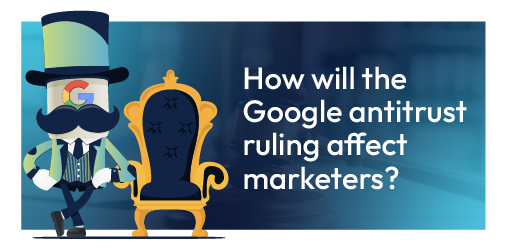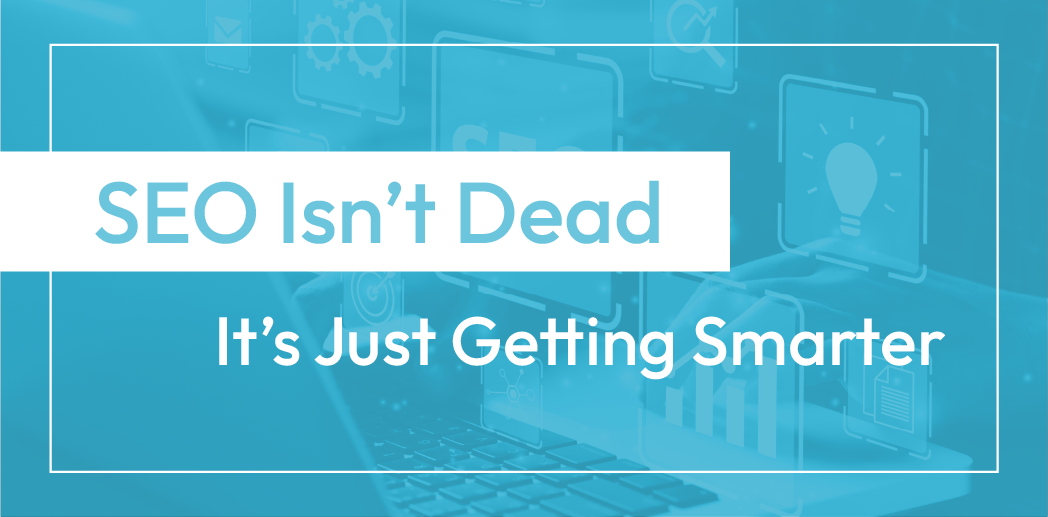How to Rank Higher on Google Maps
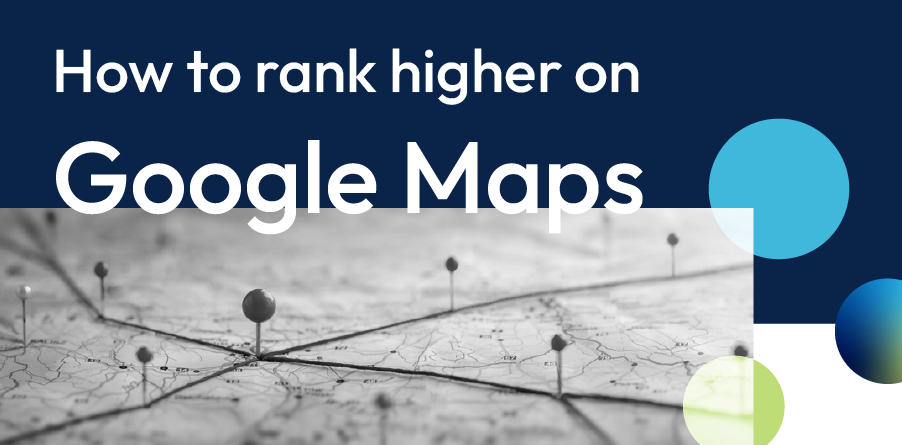
Ranking well on Google for location-specific searches is no longer optional for brick-and-mortar businesses who desire to be competitive in their local area. The Local 3-Pack, a Google Maps selection of prominent businesses, is one of the most critical spots to appear.
Why are Google Maps rankings important? How can your business dominate Local 3-Pack listings for relevant search queries? Below, we discuss the answers to these questions and more!
Why Are Google Maps Rankings Important?
For businesses with a physical location, optimizing your online presence for local SEO prominence is paramount to business growth – online and offline. Google users are primarily searching on mobile devices, and 30% of all mobile searches have location-driven intent. 76% of individuals who search for something local visit a business within a day, and 28% of those searches end in a purchase.
Appearing for local Google search results directly correlates to both online and offline traffic. Google Maps is one of the most significant tools for organic visibility, with the ability to channel potential customers directly to your storefront. Google Maps results appear in the Local 3-Pack for many location-based organic searches, like "pizza near me," displayed below.
According to Search Engine Journal, “Google Maps is making it easier to explore, navigate, and make sustainable choices, whether driving an EV or exploring a new city on foot.” However, if your business does not rank in the Local 3-Pack, it is unlikely that users are going to find your Google Maps listing at all –
75% of Google searchers do not move on to the second page of local search results.

How Does Google Rank Local Results?
Before diving into tips for achieving better Google Maps rankings, we will explore how Google determines local rankings. The following factors listed are four primary considerations, but do not encompass every possible variable.
- Name, Address, Phone Number (NAP) Citations: Google looks for consistent business identifiers – name, address, and phone number – across the web. If Google finds NAP inconsistencies, your business appears less credible.
- Distance: Google takes into account how far a potential customer is from the business listing.
- Relevance: Google considers how relevant your business is to the keyword phrase used by the searcher. For example, your coffee shop will not rank in the Local 3-Pack for “transmission repair near me,” even if the Google user is standing directly outside your location.
- Prominence: Finally, Google considers how prominent or well-known your business is in general.
Tips For Ranking Higher On Google Maps
1. Set up your Google Business Profile
Before attempting to rank higher on Google Maps, you need to ensure that your business exists and that you own it – according to Google’s records. To do this, set up and verify your Google Business profile. The process is simple:
- Make sure you are signed into your Google account. Then, proceed to the Google Business Profile page.
- Either claim or create a listing for your business. Anyone can create a listing (although not anyone can own the listing), so ensure that your business directory does not already exist. If it does, claim the listing and correct information, as needed. If not, create your listing!
- Accurately complete all business information.
- Select the proper category.
- Add a contact.
- Verify your account. While this step of the process may take the longest, it is absolutely critical. Verifying your account gives you ownership of the business listing. If you are verifying that you own an existent listing, Google allows for verification via email or phone. However, if you are creating a new account, you must verify your physical address via traditional mail.
- Add a variety of quality photos that accurately portray your business. Beyond a lack of visual appeal, businesses without photos appear illegitimate.
- Make sure all information is correct.
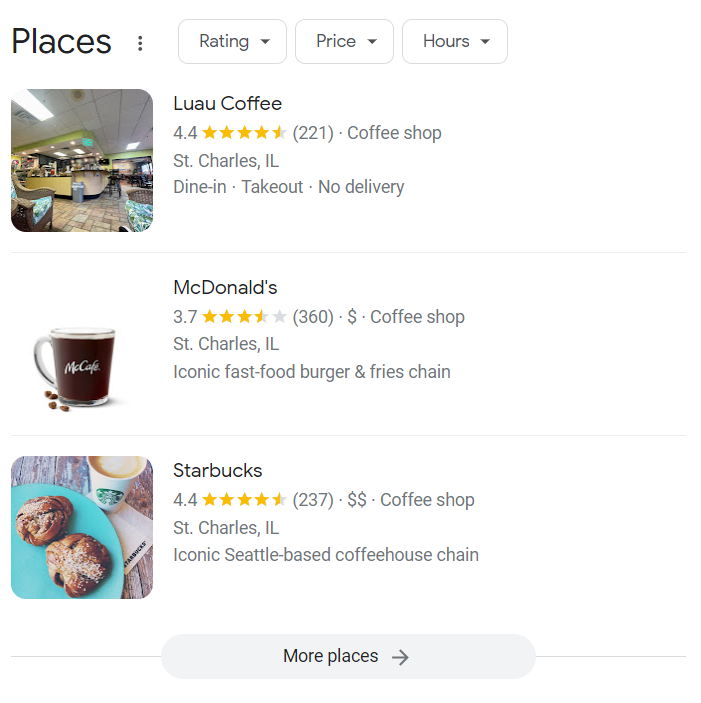
2. Pursue online reviews
Reviews are one of the most important Google Maps ranking factors! Many businesses have developed convenient, intuitive systems to gather positive reviews from customers. Whether a business asks for an online review at the completion of a helpful interaction or boldly displays a review request at checkout, discovering an effective method to pursue online reviews is absolutely critical.
Online reviews are not only beneficial for SEO – they improve user experience, manage customer expectations, and build social proof. Potential customers often read reviews before visiting a new store or purchasing from a new brand. Google understands this, weighing Google and third-party reviews heavily in local ranking factors.
Beyond number of reviews, Google weighs a few additional considerations. Moz provides a shortlist of these, including:
- Whether a review has text with the star rating or not
- The words chosen to write the review
- The business’ overall star rating
- Review consistency
- Overall review sentiment
If positive reviews are so important to local ranking, what should you do about poor customer reviews? First off, do not try to defend yourself or reply with aggression. Even if the complaint is exaggerated, apologize and offer to rectify the situation. Bad reviews actually offer the opportunity to demonstrate professionalism to potential customers and the reviewer. Ultimately, try to overcome negative reviews with positive ones.
3. Build local links
Local link building is crucial to ranking higher on Google Maps and local search results. Unlike backlinking associated with national SEO strategies – primarily intended to demonstrate credibility to Google – local link building offers heightened potential for driving real business.
One simple and effective way to begin local link building is via local relationships in your area. Consider an organization you support, a business you partner with, or complimentary companies. If a relationship is already established, receiving a local link will be easier. Simply offer to write a testimonial in exchange for a link or craft a piece of niche content that will naturally link back to your website.
Want a free same-day SEO health scan?
No strings attached - receive a comprehensive report covering 140 unique data points about your website's technical SEO health in 24 hours or less!
Free SEO Health Scan - How to Rank Higher on Google Maps
4. Report Google Maps spam
Unfortunately, spam cluttering Google Maps results dilutes the possibility of legitimate rankings. Spammy Google Maps listings can be identified via illegitimate “website” links, fake addresses, false reviews, or keyword-stuffed business names.
To request a change, simply select “Suggest an Edit” beneath the listing. If the business seems illegitimate, select “Remove this place,” and identify the precise reason. If the listing name is keyword-stuffed, select “Change name or other details” and remove the keyword. If suggesting an edit is ineffective, consider completing Google’s Business Redressal Complaint Form to deal with spam listings.
5. Make sure your website content is optimized
Your website matters too! When you created and claimed your Google Business Profile listing, you provided a link to your website, and Google takes this into consideration. Your website supports your Google Maps rankings. While continual search engine optimization efforts will be beneficial to improved local rankings, ensure that the following items are completed immediately:
- NAP consistency is critical across the web – including your company website. Make sure all your business identification information is consistent.
- Embed a Google Map of your location within your Contact page. This confirms to visitors that your Google Business Profile address is accurate.
- As the majority of local searches are completed on a mobile device, your website must be mobile-responsive to create an optimal user experience. Is your website mobile-friendly? How is the loading time? Is your website secure (SSL certified)? If the answer is no, it's time to update your platform.
- Finally, optimizing your web pages for location-targeted searches is extremely beneficial. Do your pages have enough high-quality content? Are your images geotagged? Do they have alt tags? Are keywords included in your page content but do not overwhelm the user experience?
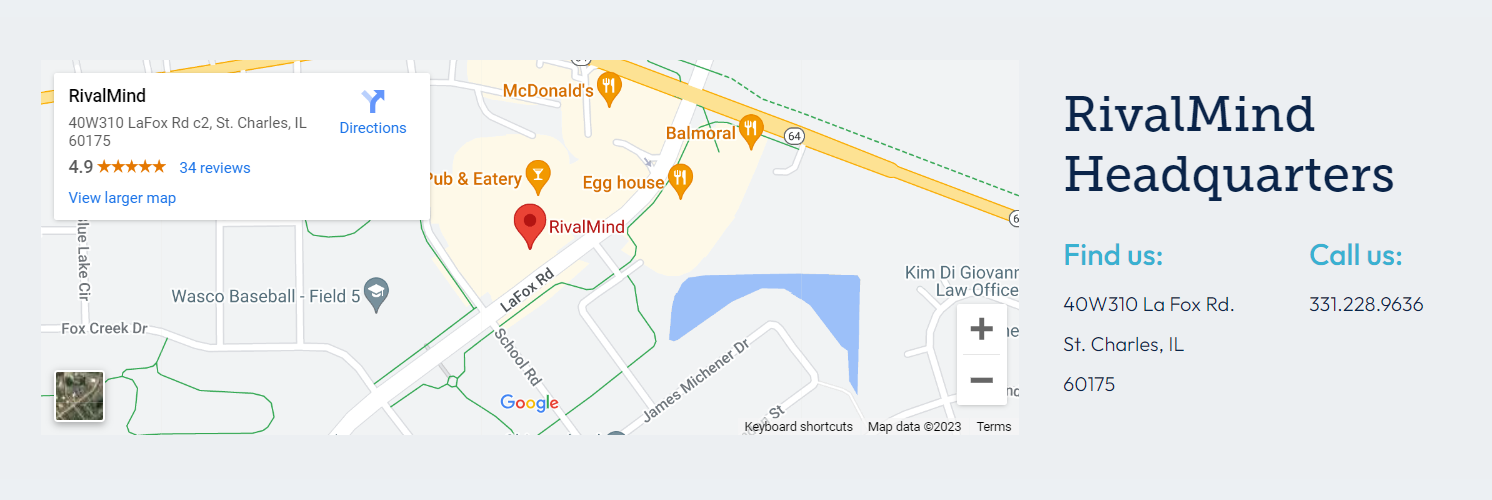
Ultimately, an optimized Google My Business listing and website coalesce to improve Google Maps rankings, driving potential customers to your digital storefront as well as your physical location.
RivalMind: Results-Driven Marketing
At RivalMind, we offer genuine SEO and world-class web design for companies poised to grow. If you are interested in learning how to improve your local presence, please reach out for a free SEO audit, and one of our strategists will be in touch shortly.

Meet the Author
Josiah Flex
Senior Search Manager
Josiah Flex, a digital marketer, is passionate about helping companies see real, lasting growth. With a background in personal training, he enjoys helping people identify and achieve their goals – from online visibility to increased leads. Ultimately, consumers use search engines, like Google, to identify the best answer for their needs, and companies engaged in great SEO have the highest likelihood of winning prospective consumers, one step at a time. This is true success.
Specialties: Building Client Relationships, RivalMind Hype Guy
Looking for more organic website traffic?
Welcome to RivalMind. Our purpose is to help your business thrive. We are a digital marketing agency that offers SEO, PPC, Web Design, Social Media and Video Solutions as tools to our clients for online business development and growth.
Contact us today to get started!
Blog Contact Form
Connect with Us:


